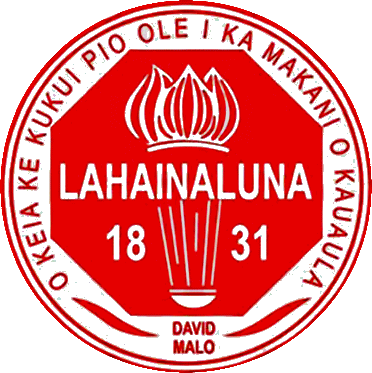Highlights:
Lunas’ Fighting Spirit
Overcoming COVID Challenges
Samantha Shibao

“I think it affected us big, because knowing that the younger people haven’t had big boys–and our big boys is like the foundation of our team,” said Michael Rayray sitting in the AD’s office. The AC was blasting, and the other captains waited silently for Rayray to finish. They seemed only a little anxious, searching for something to say about their time during COVID. “Without big boys, they don’t really know everything,” Rayray finished, “They don’t come up ready.”

In 2020, these five players, like everyone else in the world, were isolated from their friends and stuck at home behind a computer screen all day. They sat in Zoom meetings for 6 hours at-a-time, silent, their only interactions with parents and siblings in other rooms.
In this environment, our communication skills began to deteriorate, and anxiety levels soared.
Big Boys
According to Collins et al. in Medicine, COVID-19-related disruptions created “heightened states of anxiety, isolation, and depression.” College-level athletes after COVID disruptions, for instance, experienced reductions in the “motivation to train and level of satisfaction from training.”
Examining high-school athletes found that COVID had given them “increased anxiety, more dejection, and more anger.” These negative feelings and frustrations, associated with a long period of isolation, might have been “magnified in high school student-athletes seeking collegiate-level athletic scholarships,” they add, as older students would have also become anxious about missing out on recruiting opportunities.
While this last point is about older players, younger players and our current players, as Rayray noted, came into the sport unprepared, without mentors, guides, or examples to follow.
Chemistry and Music
“The goal is to improve every day—together and individually,” said Luna’s Team Captain Joe-boy Archangel before Saturday’s Homecoming game. He was referring to the team’s emotional growth over the past three years. “Having discipline was important to getting through [the effects of COVID], but obviously we can always work on it. I already know that, throughout the season, we’re already gonna pick it up, slowly but surely.”
Chaser Boaz said simply that success is a matter of “chemistry and teamwork.” Rayray added, however, that success is something more personal: “Honestly, just music. Gotta lock in and be in that zone. Staying disciplined, that’s all you need.”
Kawaika Kaili notes that preparation is key. “It’s like a steppingstone into our entire MIL season. We’re just learning, seeing our mistakes in the preseason so we can fix it overall and practice. Then, once we have our MIL season, we’ll be prepared for anything.”
On the future and preparation, Rayray said that “lifting helps us with everything and puts us all together.” “I feel like the trainers too,” Archangel added. “Going in their room, making sure that we’re staying healthy, and if we have any injuries we need to take care of, they make sure we get that 200 percent."
Training Separately and Together
After a recent defeat by Kamehameha, Hoken Hironaka suggested, “Honestly, team chemistry wasn’t really our problem. I would say that we just have to practice harder and smarter.”

To train, the Lunas do drills and conditioning on the field, but they also watch videos that the team makes available to all the players. According to Boaz, they do much of this viewing on their own. “Everyone watches films on their own time, and nobody really relies on anyone else to give information.”
Athletic Director John Conrad suggests that reviewing game footage is helpful, but something that only the best players do. Comparing it to academic preparation, Conrad notes, “Would you rather be an A student or B student?”
Despite the time commitment, some of our players regularly do their (football) homework, which, as Conrad notes, helps our players anticipate the plays of the other team: “If you watch a play of another team before the upcoming game against them, and you can practice on how to go against it, then when you see that play get set up by the opponent’s team, you’ll be ready and know what to do.”
Teamwork
Teamwork is crucial for the Lunas’ success. According to sport science writer Luke Nielsen, reviewing videos, like anything else, is most effective with guidance. This guidance often comes from coaches and senior players who help younger teammates understand and analyze game footage.
A study conducted by Desmond McEwan and Mark R. Beauchamp concluded that effective tams use “multiple teamwork behaviors.” Effective communication, mutual support, and shared goals are essential for the Lunas to perform well on the field.
Looking Ahead
As the season progresses, the Lunas are focused on continuous improvement. “We always reach a certain point towards the end of the season, but we kind of let the physical part do the talking,” Boaz stated about the team as a whole.
When asked about how their preparation had set them up for homecoming, Jackson Hussey, Simione Olakauatu, Enoka Balinbin, and Jeremiah Baybayan all dismissed the question before Simione spoke for the group: “We aren’t going to say nothing like that. We’re Lahainaluna, we don’t talk, we just do.”
Heading 6

